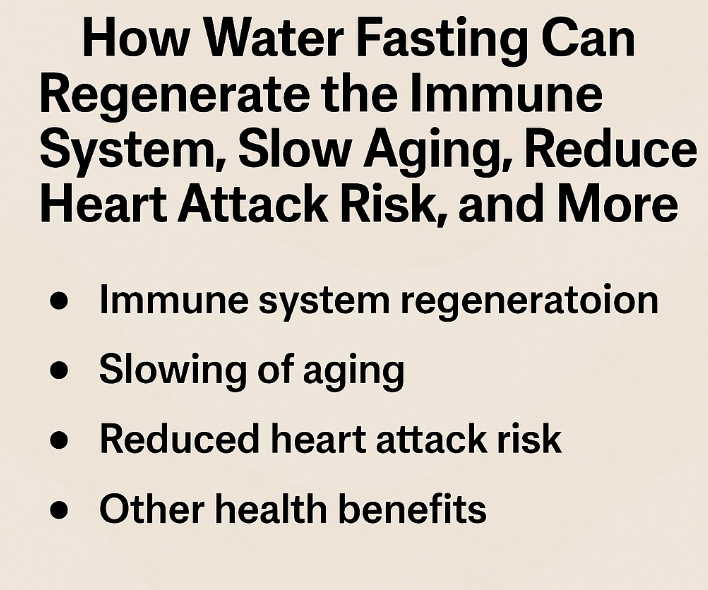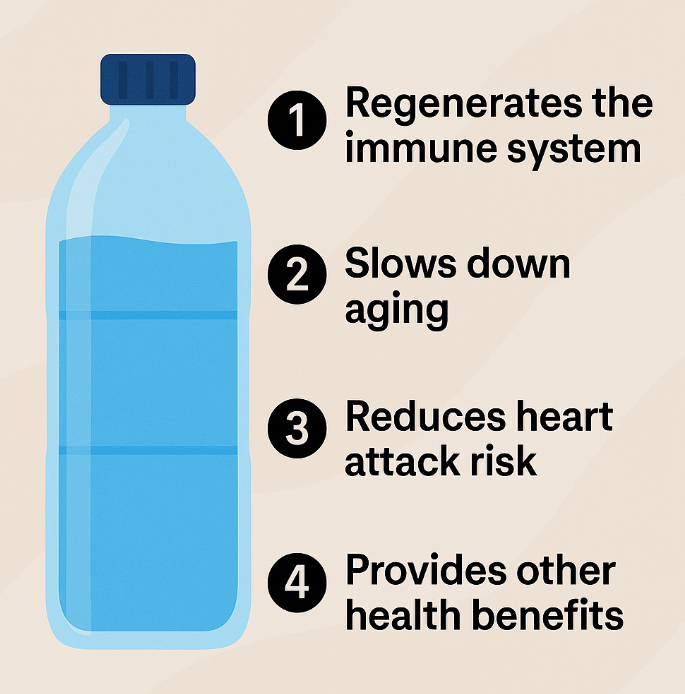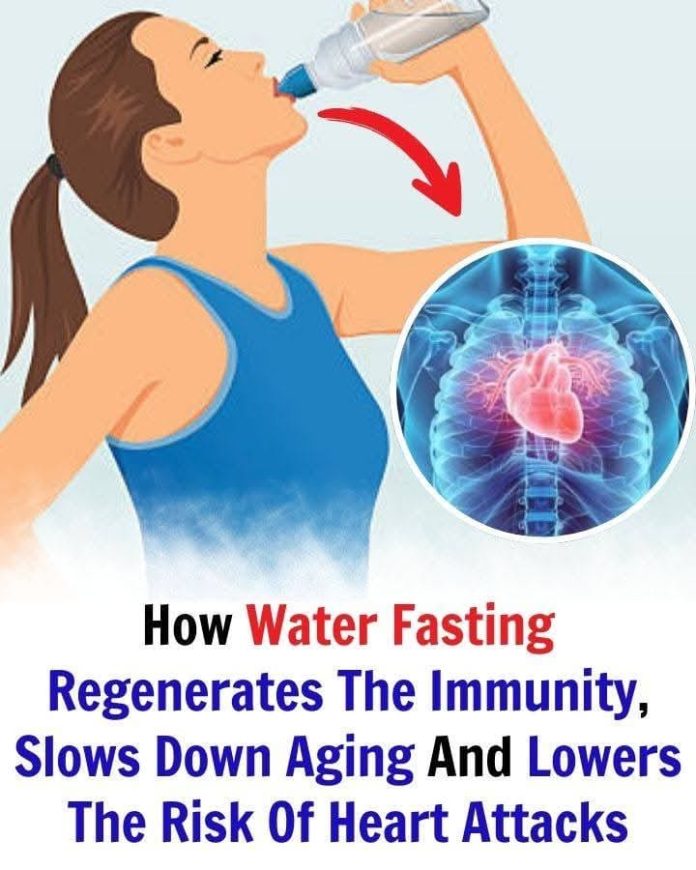Water fasting, defined as the voluntary abstention from all food and caloric beverages except water for a specific period, has garnered significant attention for its purported health benefits. Emerging research suggests that water fasting may play a role in regenerating the immune system, decelerating the aging process, reducing the risk of heart attacks, and offering other health advantages. This article delves into the scientific evidence supporting these claims and examines the potential mechanisms underlying these benefits.
Immune System Regeneration
Prolonged fasting has been associated with the regeneration of the immune system. A study conducted by researchers at the University of Southern California found that extended fasting periods prompted hematopoietic stem cells to shift from a dormant state to one of self-renewal. This process leads to the regeneration of white blood cells, effectively rejuvenating the immune system. The researchers noted that fasting “flips a regenerative switch,” stimulating stem cell-based regeneration of the hematopoietic system.

Slowing the Aging Process
The impact of fasting on aging has been a subject of extensive research. Studies indicate that calorie restriction, including fasting, can influence metabolic processes linked to aging. For instance, a diet that mimics fasting was shown to reduce biological age by approximately 2.5 years in participants who followed the regimen for five days a month over three months. This reduction in biological age suggests a deceleration in the aging process, potentially extending healthspan.
Reducing Heart Attack Risk
Fasting may contribute to cardiovascular health by improving various risk factors associated with heart disease. Research has demonstrated that intermittent fasting can lead to reductions in blood pressure, cholesterol levels, and insulin resistance. These changes collectively decrease the risk of developing cardiovascular diseases, including heart attacks. Moreover, fasting has been linked to decreased levels of inflammation, a known contributor to atherosclerosis and heart disease.
Additional Health Benefits
Beyond the aforementioned advantages, fasting has been associated with several other health benefits:
- Enhanced Cognitive Function: Animal studies suggest that intermittent fasting may support brain health by promoting neurogenesis and protecting against neurodegenerative diseases.
- Weight Management: By restricting caloric intake, fasting can lead to weight loss and improved metabolic health, which are crucial factors in preventing obesity-related diseases.
- Cancer Prevention: Some research indicates that fasting may reduce the risk of certain cancers by lowering insulin-like growth factor 1 (IGF-1) levels, a hormone linked to cancer development.
Mechanisms Underlying Fasting Benefits
The health benefits of fasting are believed to be mediated through several biological mechanisms:
- Autophagy: Fasting induces autophagy, a cellular process that removes damaged components, thereby promoting cellular repair and maintenance.
- Hormonal Changes: Fasting leads to hormonal adjustments, such as increased human growth hormone (HGH) secretion, which aids in fat metabolism and muscle preservation.
- Reduction in Inflammation: Fasting has been shown to decrease the production of pro-inflammatory cytokines, thereby reducing systemic inflammation.

Considerations and Risks
While the potential benefits of fasting are compelling, it is essential to approach fasting with caution:
- Individual Variability: Responses to fasting can vary based on individual health status, age, and underlying medical conditions.
- Nutritional Deficiencies: Extended fasting periods may lead to deficiencies in essential nutrients if not properly managed.
- Medical Supervision: It is advisable to consult healthcare professionals before initiating a fasting regimen, especially for individuals with existing health concerns or those on medication.
Conclusion
Emerging research suggests that water fasting may offer a range of health benefits, including immune system regeneration, slowed aging, and reduced risk of heart attacks. These effects are likely mediated through mechanisms such as autophagy, hormonal changes, and decreased inflammation. However, further studies are needed to fully elucidate these relationships and to establish safe and effective fasting protocols. Individuals considering fasting should do so under medical guidance to ensure safety and efficacy.

















